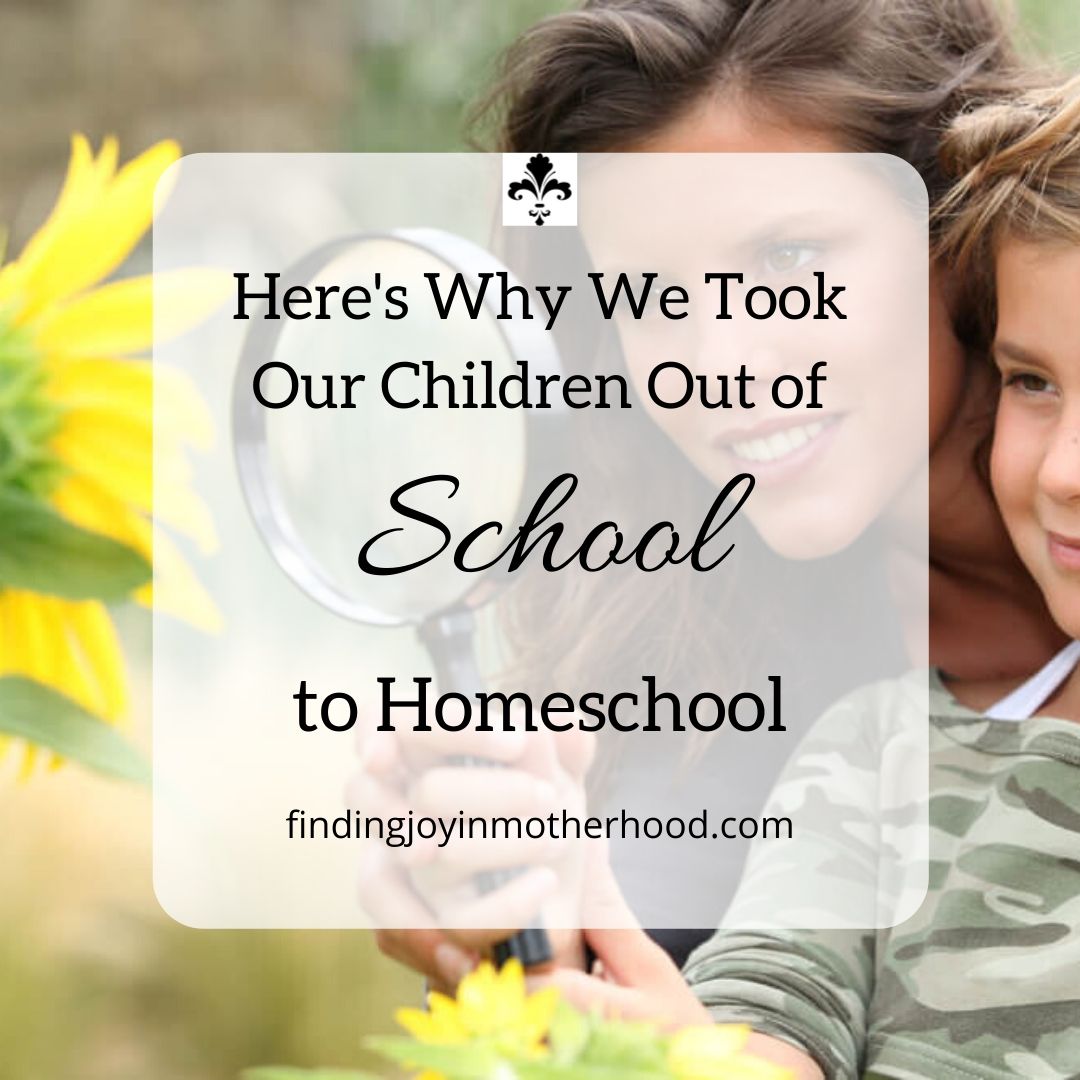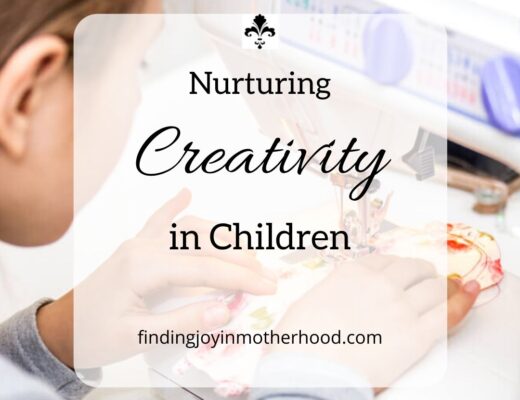Twenty-six years ago, my husband and I made a decision that would change the course of our family forever. We took our four school-aged children out of Catholic schools and decided to try homeschooling. Although I had lifetime certification as an elementary teacher, I had many reservations. I knew I could teach them – most parents can. The curriculum through 8th grade is not rocket science. (Common core curriculum isn’t rocket science – it’s just bad curriculum.)
But homeschooling was still counter-cultural back then. How would my children learn to ‘get along’ with others without the school experience? How would I learn to get along with THEM all day long (while also taking care of two toddlers)?
We made the decision to commit to homeschooling one year at a time.
I want to say upfront, that I don’t think homeschooling is for everyone. For many different reasons, it may not be a good fit for you or your family. I’m often asked why WE homeschooled, and this is why. I don’t judge anyone else for not coming to the same conclusions we did in making our decision.
Socialization and Homeschooling
It may surprise you that socialization is a reason we took our children out of school. Usually, socialization is the threat you hear from everyone as a reason to not homeschool. “Your kids won’t know how to get along with others”, “They won’t know how to interact with others”, “They’ll be social freaks”, “How lonely will they feel without friends?”.
But when our seven-year-old came home from school one day and ‘socialized and educated’ his younger brother about the middle finger I felt the attack at both their innocence. I was angry and heartbroken.
Protecting my children’s innocence was a critical component to our family culture. After doing a lot of research my senior year in college, I wrote a lengthy paper about the loss of innocence at an early age, and the harmful effects it has on a child. I was fiercely protective about that aspect of parenting.
I realized that other parents were not so concerned about a child’s innocence, and with seven children I was going to quickly lose control over what my children were exposed to at too young an age. We are not ‘hide from society’ type of people. We are very much in the world. But protecting your child’s innocence until they are old enough to know how to evaluate and respond to incoming inappropriate stimuli is critical to their development as kind, empathetic, confident, and joyful Christians.
Lack of Socialization is a Myth in Homeschooling
Through sports teams, scouts, youth orchestra, and neighborhood playmates our children learned quickly that not all kids are kind – at times, I’m sure my own children weren’t always kind. But it wasn’t a day in day out assault on their self-esteem.
We wanted our children to be at ease with all types of people of all age levels without the arbitrary segmenting that happens in most schools via grade levels.
With seven children, we have seven very different personalities. I have introverts and extroverts. Some are shy, most are very at ease. As adults, NONE of them have said they wished they weren’t homeschooled. The only comment they have made was that upon entering high school, they wished they knew how mean children could be. Although they had to adjust to that (and some took it harder than the others), they still don’t think they would have preferred a traditional school.
Learn at Their Own Pace Without Wasting Their Time
A huge benefit of homeschooling is that children will learn at their own pace. Now, that doesn’t necessarily mean that they’ll graduate 8th grade at the age of 12! It does mean that they’ll learn the standards of their grade and then have time to really learn through their imaginative creations, time for STEM activities, and self-initiated experiments.
Learning is not necessarily a linear process. True, there are standards for each grade that must be met, but learning really happens when children have the chance to go deep into a subject – to actually apply the concept and see how far they can investigate it.
You can teach the value of coins and dollar bills, but it comes alive when you (or the older kids) set up a store in your home, give everyone money to ‘purchase’ things, put price tags on items, and the other kids (or dad) goes shopping. Counting the money, making change, and the joy of the process will not only be a memory they’ll treasure, but will also help them cognitively as they apply the knowledge to real life situations.
Creates Close Family Ties
Michael and I (on our 2nd date!) discussed the type of family we wanted. Both of us wanted one thing – a close-knit, large, faith-filled family. We wanted our children to be best friends – to learn how to get along as siblings even though they may be quite different in temperament. Friends come and go, but siblings are forever.
When our son came home crying that his best friend (his older brother) was chasing him around at recess trying to punch him (egged on by the older brother’s friends), a part of me was crushed.
In our society, we tend to put too much emphasis on finding and making friends with outsiders, rather than nurturing friendships from within.
Homeschooling Gave My Motherhood Meaning
Probably the biggest reason I’m so grateful we took our children out of school to homeschool is because it made me a better mother.
I was managing my children and all their activities just as I managed our home. I was making sure everything (whatever everything is) was done, kids were where they needed to be, up in the morning, off to school, routine of the day, bedtime then on to the next day to start all over again.
But I wasn’t mothering – being the kind of mother I wanted to be. I was so caught up in the craziness of getting through the day, that I wasn’t taking the time to engage, enjoy, and discover who my children were – what excited them, what concerned them, what made them tick, and what brought them joy.
How Much Time Do You Spend With Your Children?
Studies say that on average, we spend 45 minutes interacting personally with our children each day. It is true that being with your children all day, every day is a big adjustment and sometimes very difficult. But it was the glue that held my relationship with each child. When they went off to high school and beyond, they could look back over the years and know I knew them – really knew them.
More time with them also allowed me to pass on our faith by living it throughout the days. We studied the bible and the truths of our faith. But we also lived the liturgical calendar in our home bringing the church seasons and celebrations alive for our family.
One Year at a Time
Twenty-six years later, would I do it again? Absolutely! My husband and I agreed to revisit our decision every spring to confirm we wanted to continue. Every spring, there was never a discussion because we were so in love with watching our children develop that we knew it was the right choice for our family.
Homeschooling is hard. But with every joy comes sacrifice. And like labor, you forget the hard parts and rejoice in the blessings.
If you have any questions about homeschooling, please feel free to email me at janet@findingjoyinmotherhood.com or check out these other posts on homeschooling HERE, HERE, or HERE
Have a great week!
Janet
Please save to your favorite Pinterest board





No Comments